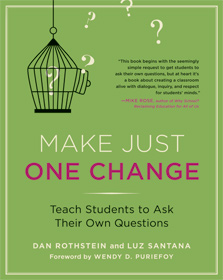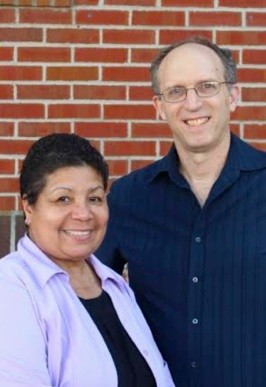The idea for the Right Question Strategy did not originate in a laboratory nor in an academic study. We began our work with a dropout prevention program in Lawrence, MA, funded by the Annie E. Casey Foundation, when parents told us they were not participating in their children’s education because they “don’t even know what to ask.” Parents had identified a huge obstacle that prevents many people from thinking for themselves, from doing their own problem solving, from becoming more self-sufficient and from being able to see the “Big Picture” beyond their own lives.
It only took hearing that statement one or two…thousand times, and we finally got it. Eventually, we figured out that we had to find a way to teach people how to formulate their own questions. We’ve spent 20 years designing ways to do that as simply and effectively as possible and created the Question Formulation Technique (QFT).
We noticed that the people who were most effective in using their new skill of question formulation focused their questions on key decisions affecting them. This may sound easier than it actually is in practice. Decisions are often hidden from ordinary citizens, whether done deliberately or not. This puts them at a great disadvantage in their ordinary encounters with public agencies and programs, such as their children’s school, the local welfare office, the Medicaid system and elsewhere.
Eventually, we saw that the most effective advocates for their families were the people whose questions focused on:
- The process for making the decision
- The role they could play in that process
- And the reasons for the final decision-making processes that affect them
Based on what we learned, we eventually teased out a teaching tool, the Framework for Accountable Decision-Making, and saw its connection to accountable decision-making in a democracy. We saw that as people began to participate in their ordinary encounters with public agencies, they turned what had been the endpoint of their interaction with the public sector into a new starting point for democratic action. That led to the concept we call Microdemocracy.
In field after field, in community after community, RQI’s educational strategy has been tested and proven particularly effective for engaging and building the skills of people who have rarely been active participants in key decisions that affect them. That’s thanks probably to two factors: First, the original idea came from listening to the people who were not participating. Second, we’ve worked hard to simplify, simplify and further simplify the process for teaching these very sophisticated skills.



